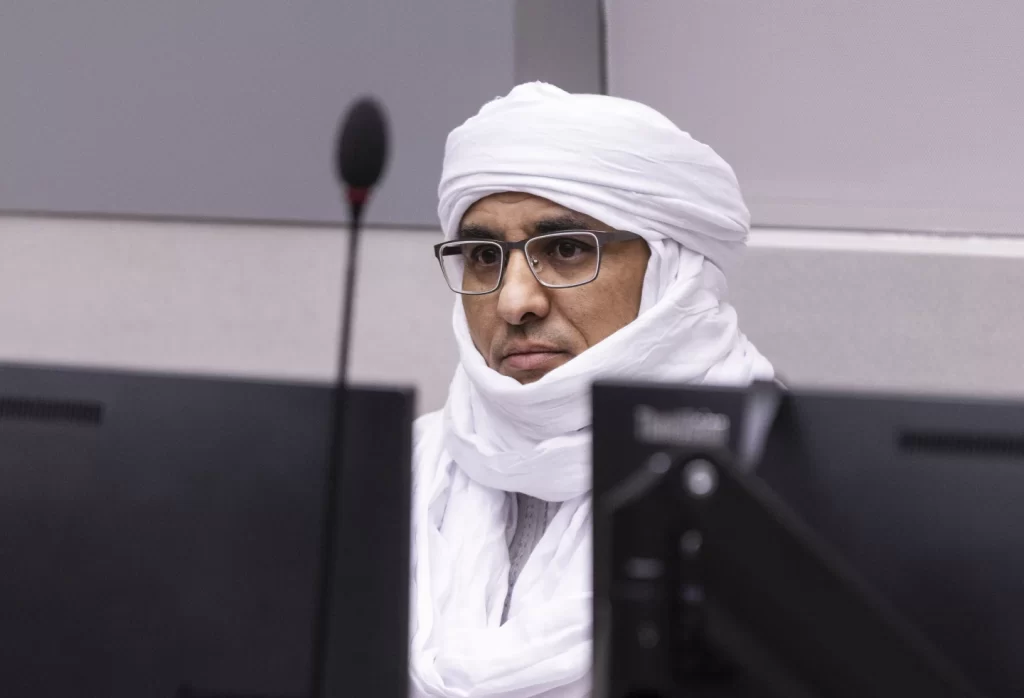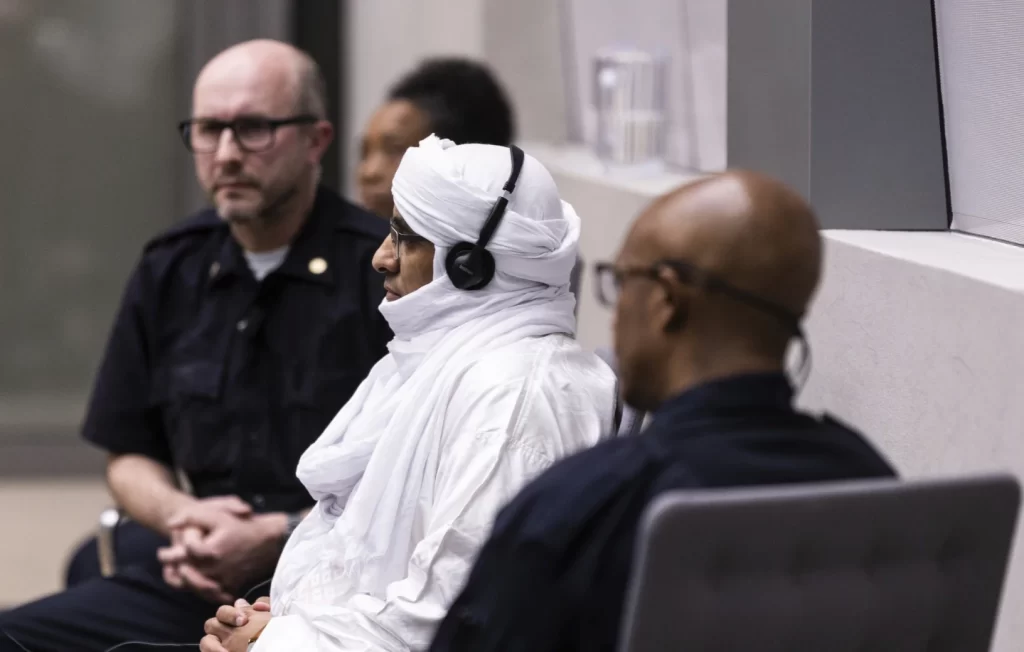The International Criminal Court sentenced Al Hassan Ag Abdoul Aziz Ag Mohamed Ag Mahmoud to 10 years in prison Wednesday for war crimes and crimes against humanity committed while leading the Islamic police in Mali’s historic city of Timbuktu, marking another milestone in prosecuting extremist violence in West Africa.

The 48-year-old former Ansar Dine leader, who stood expressionless in traditional white robes during sentencing, was convicted of torture, religious persecution, and other inhumane acts carried out during the al-Qaida-linked group’s 2012 occupation of the desert city.
“This regime and these acts had a traumatic impact on the population of Timbuktu,” declared presiding judge Kimberly Prost, though the three-judge panel acquitted Al Hassan of charges related to women’s abuse, including rape and sexual slavery, citing insufficient evidence linking him directly to these crimes.
The conviction focused on evidence of prisoner abuse, including confinement in cramped, unsanitary cells and systematic flogging. Al Hassan’s defense lawyer, Melinda Taylor, had argued during trial that his actions merely reflected his obligation to enforce Islamic tribunal decisions, comparing his role to standard police duties worldwide.

The case represents the court’s second conviction related to Ansar Dine’s occupation of Timbuktu, following Ahmad Al Faqi Al Mahdi’s nine-year sentence in 2016 for destroying historic mausoleums and a mosque door. Both sides have appealed the current verdict.
The sentence, reduced by time served since March 2018, leaves approximately 3.5 years remaining in Al Hassan’s term. The prosecution emerged amid broader regional turmoil, as Mali and neighboring Burkina Faso and Niger continue battling insurgencies by groups aligned with al-Qaida and Islamic State.
Recent military coups in all three nations have led to the expulsion of French forces in favor of Russian mercenaries for security support. The shifting alliances highlight ongoing instability in a region where extremist groups have maintained a decade-long insurgency.
The sentencing coincides with growing tensions over Mali’s mining sector, illustrated by Tuesday’s announcement that an Australian company would pay $160 million to the military government to resolve a tax dispute following the detention of its CEO and employees, echoing September’s arrest of four Canadian mining company staff.



